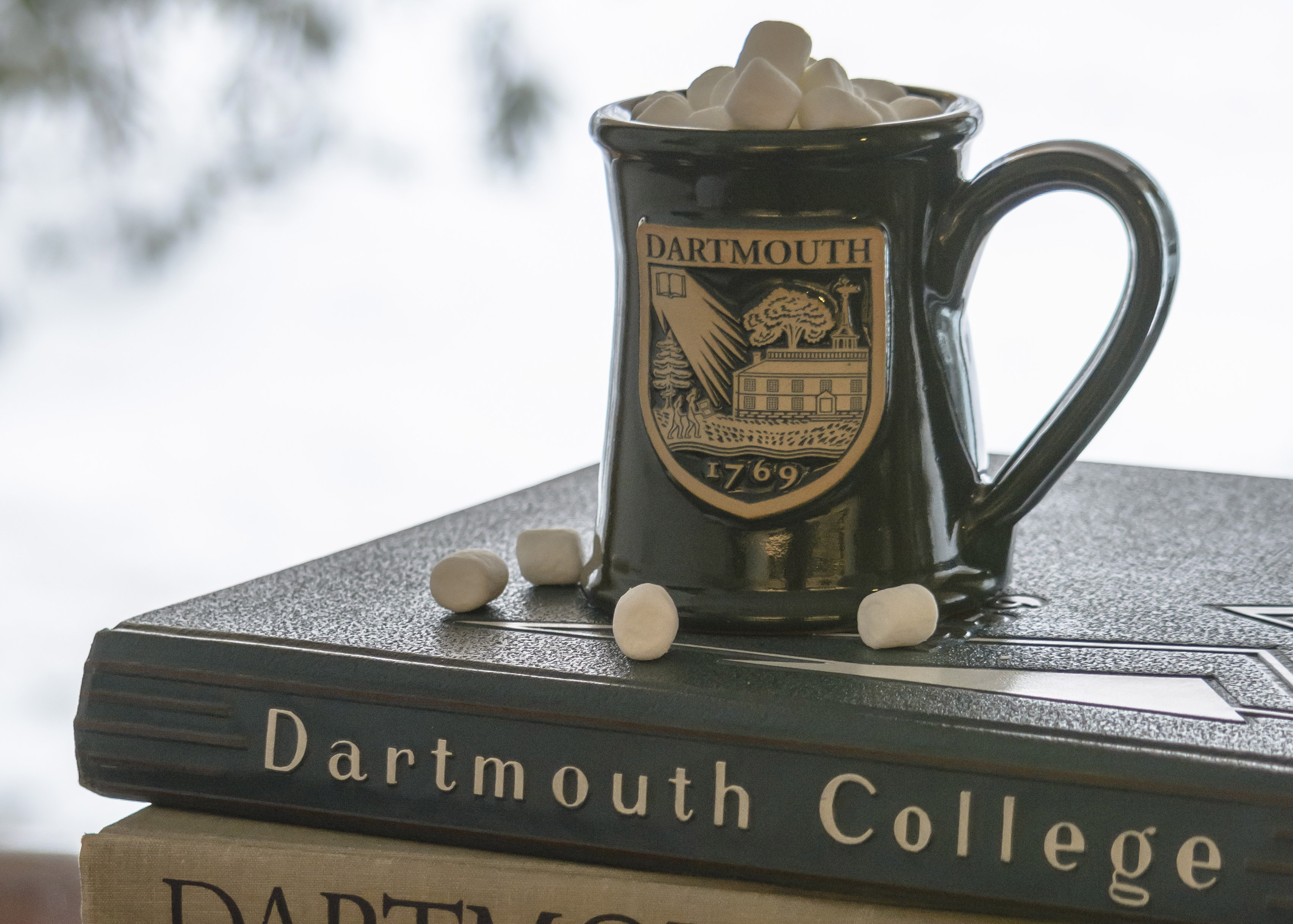These days, the sun is setting early and a blanket of snow carpets the Green. It's the perfect time of year to curl up with a good book and a steaming drink, and 14 Dartmouth faculty members have provided plenty of suggestions for you to choose from.
Whether you're looking for a gripping detective story, a stirring family memoir, or an engaging look into the ancient history of modern religion, you're sure to find a book that will take you on an intellectual journey even if the weather is keeping you inside.
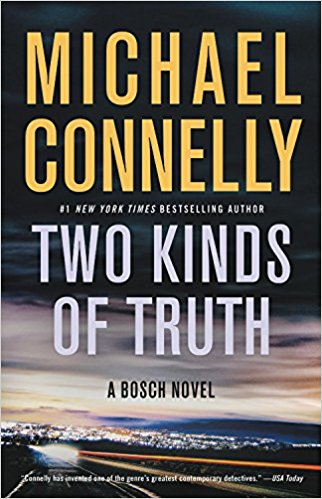
Two Kinds of Truth by Michael Connelly
Richard A. Wright
Professor of Geography
Orvil Dryfoos Professor of Public Affairs
Michael Connolly's fictional LA homicide detective Harry Bosch is a loner on a life-long mission to bring justice to victims unable to speak for themselves. For Bosch, a detective has "to move like a shark. It could never stop its momentum because that could be fatal.” As if the writer had taken a leaf from his fictional detective’s own notes, Connolly's writing is direct and relentless and he’s produced another book that is very hard to put down.
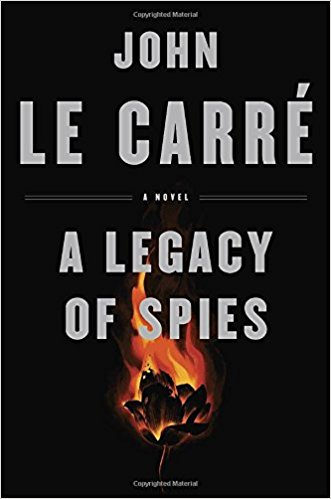
A Legacy of Spies by John le Carré
Richard A. Wright
Professor of Geography
Orvil Dryfoos Professor of Public Affairs
A Legacy of Spies is a coda to The Spy Who Came in from the Cold—the book that made le Carré famous and allowed him to become a full-time novelist. Now 85, le Carré’s writing remains as sharp as ever. John le Carré takes the reader back behind the Iron Curtain, contrasts the old British spy services with the new (neither come off well) and even revives George Smiley. Dwight Garner’s brilliant review in the New York Times comments that "Smiley must be well over 100 by now. He’s a type; one of those ashen Englishmen, like the poet Philip Larkin, who seem to be permanently 60 years old. Like Keith Richards and cockroaches, Smiley will be alive after an apocalypse.”
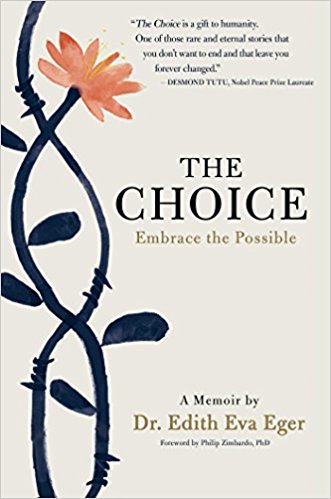
The Choice: Embrace the Possible by Edith Eva Eger
Lisa Baldez
Professor of Government, and of Latin American, Latino and Caribbean Studies
Cheheyl Professor and Director, Dartmouth Center for the Advancement of Learning
I’ve read some terrific books lately — including White Oleander by Janet Fitch, Careers for Women: A Novel by Joanna Scott, and Alice McDermott’s Charming Billy — but the stories that Edith Eva Eger tells in The Choice: Embrace the Possible have stuck with me for months. Eger is a Holocaust survivor who went on to become a psychologist. The book is an intensely personal account of her life before, during and after her imprisonment at Auschwitz. Her telling is so visceral and the horrors she describes so unceasingly that at times I had to remind myself that she survived. Among them: Mengele himself summoned her to his office and demanded she dance for him. There is hope in the tiniest of details: hiding potato scraps in her underwear and later roasting them in the kitchen; the sun glinting off a can of sardines that leads to her rescue; M&Ms that an American soldier doled out one by one to keep her alive. Long after the end of the war, Eger has to dig deeper and deeper into her own trauma to heal herself. The insights she gets from her own experiences help her heal veterans with PTSD and survivors of sexual violence, and she weaves their stories into her own. The book is a bracing reminder of the grace that can emerge from our darkest suffering.
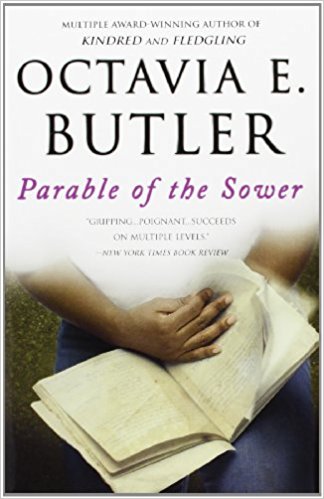
Parable of the Sower by Octavia Butler
Treb Allen
Associate Professor of Economics
Distinguished Associate Professor of Economics and Globalization
This dystopian novel published in 1993 is set in California in the 2020s, where inequality is massive and the nationalistic president's campaign slogan is "Make America Great Again." Hard to imagine, I know, but worth reading, especially to see what Butler proffers as an alternative social structure.
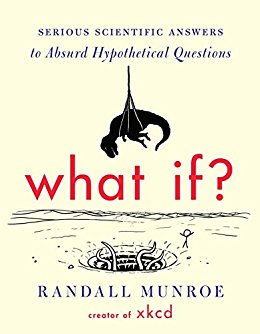
What If?: Serious Scientific Answers to Absurd Hypothetical Questions by Randall Munroe
Treb Allen
Associate Professor of Economics
Distinguished Associate Professor of Economics and Globalization
Ever wondered what would happen to us if the earth suddenly stopped spinning? Or if we all jumped at the same time? This books explores these pressing questions with scientific rigor and carefully drawn stick figures.
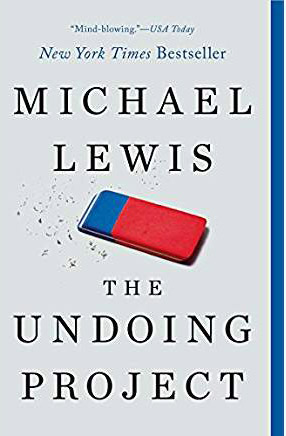
The Undoing Project: A Friendship That Changed Our Minds by Michael Lewis
Jeffrey Ruoff
Associate Professor of Film and Media Studies
It’s challenging to write well about science. (Most scientists can’t do it.) On the other hand, financial journalist Michael Lewis (The Big Short, 2010) could probably write a riveting account about anything, including faculty meetings. In his latest book, The Undoing Project, Lewis charts the great friendship and collaboration between two Israeli-American geniuses. Psychologists Amos Tversky and Daniel Kahneman empirically demonstrated not only cognitive bias, but also the fallacies of intuition. They showed, in brilliant study after study, that human rationality is itself often a fiction. (Poets and artists have always know this, but it is still news to scientists and many academics.) Their research on decision-making and judgment revolutionized the fields of cognitive psychology and behavioral economics, and, counterintuitively, transformed political science, medicine, and even sports (see Lewis’ Moneyball: The Art of Winning an Unfair Game, 2004). Like atoms, Tversky and Kahneman bonded; their conversations were electrical. As we know from Ecclesiastes 4: 9-12, "Two are better than one; because they have a good reward for their labour.” In addition to revealing remarkable scientific concepts, The Undoing Project also tells a love story — a love of learning, a love of sharing, which, unfortunately, like many such adventures, ends sadly. A marvelous read, full of passion for both knowledge and camaraderie.

The Sacred Willow: Four Generations in the Life of a Vietnamese Family by Duong Van Mai Elliott
Edward Miller
Associate Professor of History
In the wake of the broadcast of Ken Burns and Lynn Novick’s mini-series The Vietnam War earlier this fall, I have been asked many times for recommendations for books about the war. Mai Elliott’s beautifully written family memoir is one of my favorites. The daughter of a Vietnamese mandarin, Elliott was born in northern Vietnam but moved to Saigon in the 1950s and spent much of the war there. Like countless other Vietnamese families, hers was divided by the war, with members often serving on opposite sides of the conflict. Elliott weaves the moving (and often harrowing) personal stories of her relatives together in novelistic fashion. Elliott was interviewed by Burns and Novick and appears in multiple episodes of The Vietnam War, so those who were intrigued by her on-screen testimony should not miss this memoir.
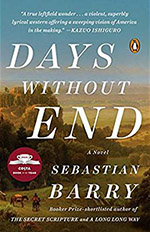
Days Without End by Sebastian Barry
Aine Donovan
Director, Ethics Institute Emerita
Adjunct Professor Tuck School of Business
This historical novel explores 19th century American history from the perspective of an Irish immigrant who fights in the civil war, defends the rights of Native Americans, and unapologetically lives life as a woman. It is beautifully written and nuanced in its explorations of gender and race.
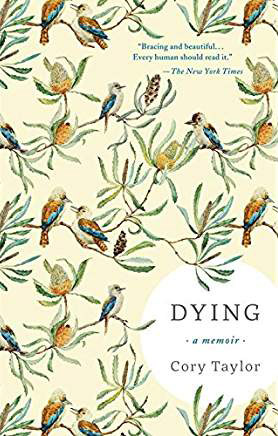
Dying, A Memoir by Cory Taylor
Aine Donovan
Director, Ethics Institute Emerita
Adjunct Professor Tuck School of Business
A heartfelt memoir written during the last phase of this woman’s life. Heartbreaking, poignant, and a must-read for medical students.
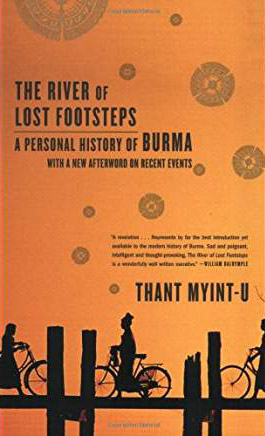
The River of Lost Footsteps: Histories of Burma by Thant Myint-U
Diederik Vandewalle
Adjunct Associate Professor of Business Administration; Associate Professor of Government, Dartmouth College
For a (now canceled) future alumni trip to Myanmar, I reread one of the very few good political histories of the country — The River of Lost Footsteps: Histories of Burma by Thant Myint-U. Both the title and subtitle of the book hint at the incoherence of how modern Myanmar was created, and at how different ethnic groups within the country have competing narratives of what constitutes the nation formerly known as Burma. Thant’s recounting of the enduring ethnic conflicts within the country since independence and of the central role the country’s military has played in suppressing dissent at all costs lays bare how little state- and nation-building has taken place in Myanmar—and how the violent persecution and mistreatment of groups like the Rohingya (the reason for Dartmouth’s cancellation of its alum trip) is the outcome of an effort by the military to, in a longstanding divide-and-rule fashion, create a misguided sense of nationalism in the absence of other means of doing so.
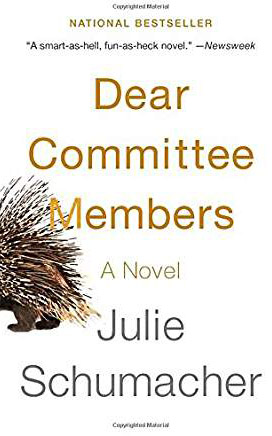
Dear Committee Members by Julie Schumacher
J. Russell Muirhead
Robert Clements Professor of Democracy and Politics and Professor of Government
Dear Committee Members is a joy even for those who do not make their living writing letters of recommendation. This finely wrought, profound, and hilarious epistolary novel for the digital age (told entirely through emails) makes fun of the modern university and along the way shows how it is possible to be a great teacher in spite of all…
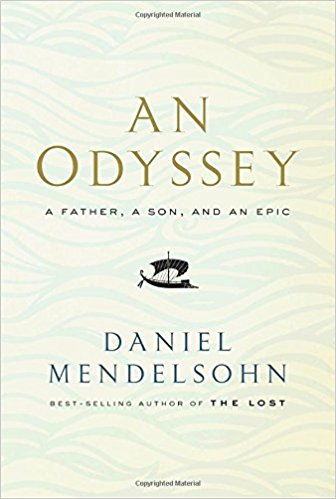
An Odyssey: A Father, a Son and an Epic by Daniel Mendelsohn
Susan Ackerman,
Preston H. Kelsey Professorship in Religion
Professor of Women's and Gender Studies
Professor of Jewish Studies
I was destined to love this book. Daniel Mendelsohn is, like me, a professor; he is, like me, a scholar of the ancient world; he, like me, has been dealing with the challenges of aging parents; and An Odyssey: A Father, a Son and an Epic is the story of how he, like me, is trying to find ways to balance these professional and personal identities. But Dartmouth alumni will love this book too, because Mendelsohn’s account of his balancing act is a quintessential story of the liberal arts and of the love of life-long learning that a liberal-arts education inspires. In his old age, Mendelsohn’s father does what many alumni (including me) would surely love to do — he goes back to college, to sit in on his son’s first-year seminar course on Homer’s Odyssey. Father and son then embark on the same sort of trip many alumni (including me) have taken: an educational cruise that retraces the hero Odysseus’s ten-year voyage home after the end of the Trojan War. With Mendelsohn and his father, then, we are back in the classroom, back learning, and — even though the hardships of old age and the sad work of watching one’s parents fail comes more and more to the fore as the book progresses — we are transported back to the world of our eighteen-year-old-selves, just beginning our Dartmouth careers. That's a great gift.
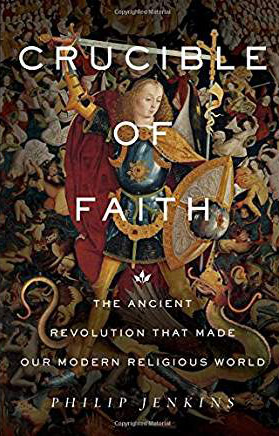
Crucible of Faith: The Ancient Revolution That Made Our Modern Religious World by Philip Jenkins
Lindsay J. Whaley
Professor of Classics and Linguistics
The period between 250 BCE and the first century of the common era witnessed some significant developments in Jewish religious ideas. Jenkins provides a highly readable overview of the literature and history of this era, and he offers a plausible account of how social upheavals were stimulating such theological creativity.
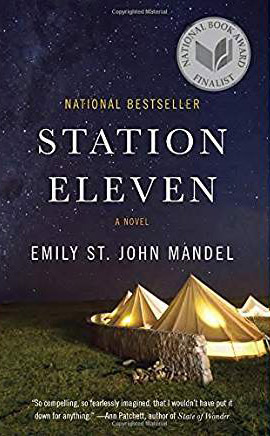
Station Eleven by Emily St. John Mandel
Charles J. Wheelan
Senior Lecturer and Policy Fellow
Rockefeller Center
I would recommend Station Eleven. The book is described as science fiction, and indeed it does take place in a post-apocalyptic future, but that does not do justice to the story. This is a beautifully written story that forces one to think about the nature of society, and in particular, the arts. I'm not giving too much away by saying that the plot revolves around a group of dramatic actors who travel through what remains of their land, performing Shakespeare in impromptu venues along the way. This is an enjoyable read, but also one that inspires deeper reflection.
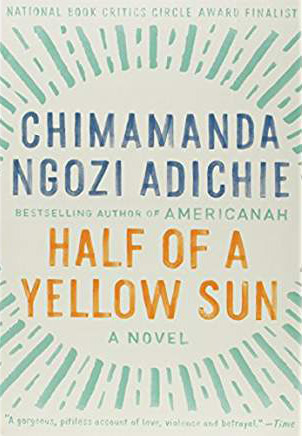
Half of a Yellow Sun by Chimamanda Ngozi Adichie
Cecilia Gaposchkin
Associate Professor of History
Assistant Dean of Faculty for Pre-Major Advising
The best book I have read in the last year is probably Half of a Yellow Sun. It is set in Nigeria during the Nigerian Civil War (1967–70). It is a wonderful, complex, heartbreaking, believable story, embedded in a historical context I knew pretty much nothing about. I loved – and learned so much from – the portrait of the educated elite, the Nigerian university environment, and bourgeois life, as well as, of course, the heartbreaking events of the war itself. It is a masterpiece. I cannot recommend it highly enough.
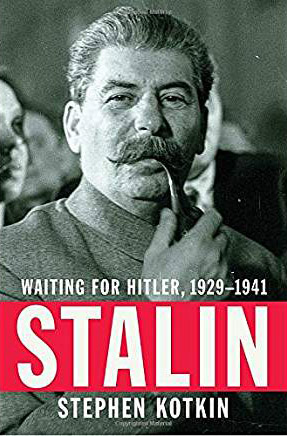
Stalin: Waiting for Hitler, 1929–1941 by Stephen Kotkin
William C. Wohlforth
Professor of Government
Daniel Webster Professor
I’m halfway through the second volume of Professor Kotkin’s definitive three-volume biography of Stalin. The book offers a fresh, arresting, and always illuminating take on some of the 20th century’s most important events. For me, as a student of international relations and strategy, it stands as one of the best accounts of grand strategy in action I’ve ever read. Its sole defect is its massive heft, which means that you have to prop it on a pillow if you want to read it lying on the couch. It takes you from the ruthless dictator’s successful attainment of the pinnacle of power in the Kremlin through his forced collectivization of the Soviet empire’s peasants (which resulted in mass starvation), industrialization, mass terror and purges, and on to his strategic moves on the brutal chessboard of 1930s global politics. The writing is lively, the evidence on which the narrative rests is unbelievably vast, and the subject is terrifying and terrible but endlessly fascinating.

